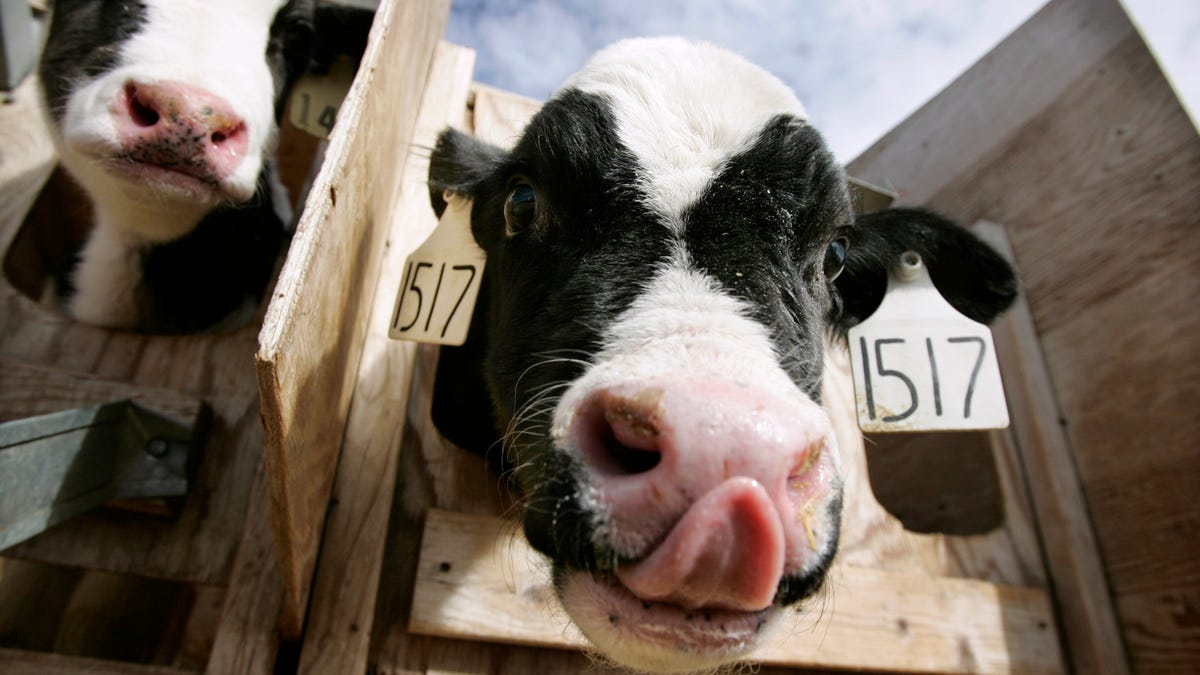Human case of the bird flu confirmed in Texas
A person in Texas has been diagnosed with bird flu, an infection tied to the recent discovery of the virus in dairy cows, health officials said.
Fox – 26 Houston
Many Americans are brimming with questions after officials in Texas this week announced the first case of bird flu in a human.
On Monday, Texas health officials said a person became infected with bird flu, or avian influenza A(H5N1) virus, after close contact with infected cows. Last week sick dairy cattle in Texas and Kansas tested positive for bird flu. Bird flu was later reported in a Michigan dairy herd that included cows that had been transported from Texas. There are also cattle in New Mexico and Idaho that are presumed to be positive for the disease, officials said.
The only symptom reported by the Texas patient was pink eye, or conjunctivitis, according to an update Monday from the U.S. Centers for Disease Control and Prevention.
Officials say the risk to public health remains low. They note that there are steps people can take to curb the spread of the potentially dangerous virus.
CDC says cases rising: What to know about meningococcal disease
How does it spread?
Bird flu primarily spreads through contact with infected birds. Most cases in humans have occurred after a person had unprotected exposure to sick or dead infected animals.
Avian flu viruses infect birds’ respiratory and gastrointestinal tracts, which causes them to shed virus via their saliva, mucous and feces, the CDC said. Humans and other mammals can get it when they get enough virus in their eyes, nose, mouth or inhale it into their lungs.
People who have had close contact or unprotected contact for long periods of time are at greater risk of infection. The disease can cause mild upper respiratory issues or severe illness, including pneumonia and multiple-organ failure that leads to death.
In the U.S., the disease tends to spread from wild birds. However, outbreaks in commercial poultry or backyard flocks that led to deaths have been reported in 48 states since February 2022.
Officials identified the latest bird flu cases in unpasteurized milk from sick cattle from dairy farms in Kansas and Texas, in addition to a positive throat swab of a cow at another Texas dairy farm.
Should we be worried about humans getting bird flu?
It’s rare for humans to be infected with bird flu. The first human case in the U.S. occurred in 2022, in a person incarcerated in a Colorado prison. The U.S. Centers for Disease Control and Prevention on Tuesday said the current public health risk is low, and, this is a vital measurement: there is no person-to-person spread of bird flu so far.
Still, there is increased risk for poultry, livestock and farmers and workers in these sectors, as well as veterinarians, veterinary staff and first-responders who respond to cases.
Ozempic and Wegovy: Weight-loss drugs cost $1,000 a month but less than $25 to make. Why do we pay so much?
What precautions have been taken with chickens and eggs? What about dairy products?
On Tuesday, the largest U.S. chicken egg manufacturer reported positive tests for bird flu at its facility in the Texas Panhandle. In a news release, Cal-Maine Foods said production at the Panhandle facility stopped temporarily, following protocols to prevent bird flu that are set by the U.S. Department of Agriculture. Personnel at the company killed about 1.6 million laying hens and 337,000 young hens to curb the spread of the virus.
Among dairy cows, milk from animals suspected or confirmed to have the virus is being removed from human food supplies. However, even if milk from infected dairy cows makes it to the commercial milk supply, pasteurization is effective inactivating bacteria and viruses, including influenza, according to a March 29 joint news release from the CDC, USDA and the Food and Drug Administration. In addition to protecting against bird flu, pasteurization is central to other health efforts. The FDA says that unpasteurized raw milk can have dangerous microorganisms dangerous to human health.
How can the spread of bird flu be stopped?
You can avoid bird flu by eliminating unprotected exposure to sick or dead animals, including wild birds, poultry or domesticated birds, or other sick or dead wild or domesticated animals. This includes contact with animal feces, waste or materials contaminated by animals suspected or confirmed with bird flu.
People should avoid consuming uncooked or undercooked food, such as raw milk or cheeses, from animals with suspected or confirmed bird flu.
Those working directly with animals who could be infected should wear personal protective equipment (PPE) such as face masks – ideally approved particulate respirators such as N95 masks, as well as goggles, gloves, boots and boot covers. Additionally, they should use fluid-resistant coveralls and disposable head covers or hair covers.
People who have been near animals confirmed or suspected of being sick should be monitored for signs and symptoms for 10 days after the exposure. This includes those who were wearing PPE.

Rachel Carter is a health and wellness expert dedicated to helping readers lead healthier lives. With a background in nutrition, she offers evidence-based advice on fitness, nutrition, and mental well-being.




:max_bytes(150000):strip_icc():focal(999x0:1001x2)/unfrosted-poptarts-jerry-seinfeld-050124-d6f04718715d4dfe83ac1b320953209b.jpg)

